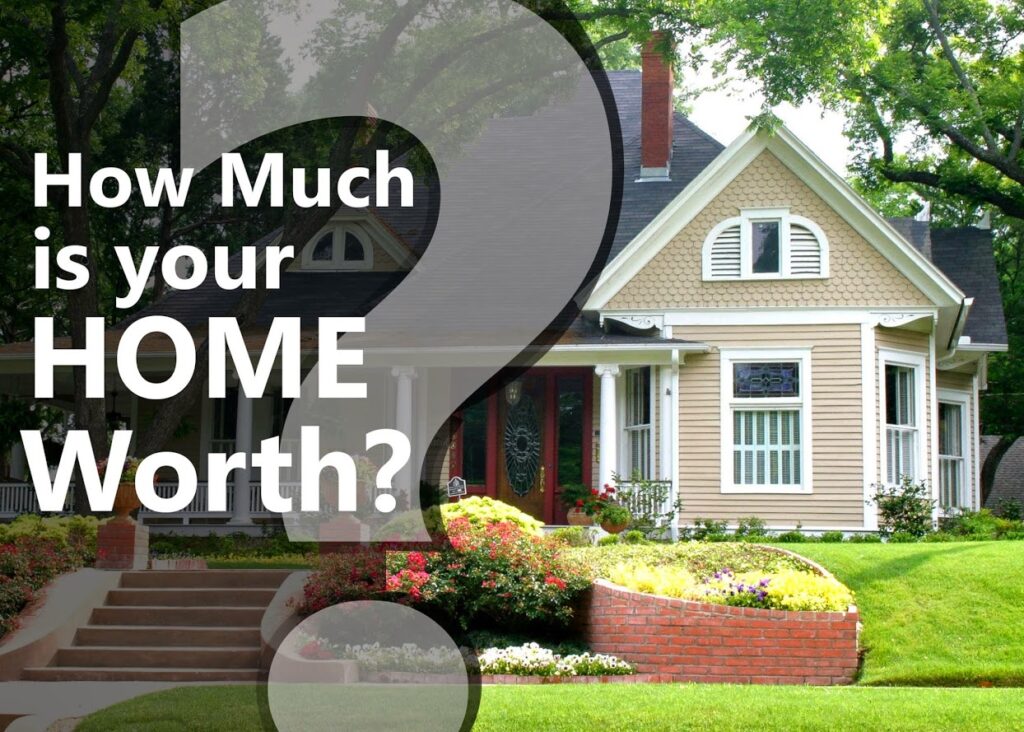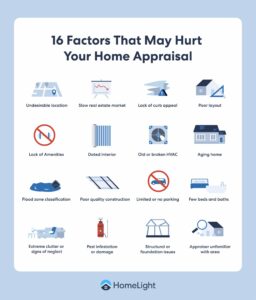
A Comprehensive Guide to Evaluating a Home’s Value
Introduction: Determining the value of a home is a crucial step in the buying or selling process. Whether you are a homeowner looking to sell or a prospective buyer aiming to make an informed decision, accurately evaluating a home’s worth is essential. In this blog post, we will explore some key factors to consider when assessing a property’s value.
-
Location, Location, Location: Undoubtedly, location plays a pivotal role in determining a home’s value. Factors such as proximity to schools, transportation, amenities, and desirable neighborhoods significantly impact property prices. Additionally, local market conditions, economic growth, and future development plans in the area can influence a home’s value over time.
-
Comparable Sales: One of the most effective methods to evaluate a home’s value is by analyzing comparable sales, also known as “comps.” Look for recently sold properties in the same neighborhood or nearby areas with similar characteristics such as size, age, condition, and amenities. By comparing these properties and their final sale prices, you can get a better idea of the fair market value for the home you are evaluating.
-
Size and Floor Plan: The size and layout of a home are fundamental factors in determining its value. Assess the square footage of the property, including the number of bedrooms, bathrooms, and other living spaces. A larger home with a practical and well-designed floor plan generally commands a higher value. Price/sqft is often used, but homes with large lots, pools, and newer builds, command higher $/sqft.
-
Condition and Upgrades: The condition of a property is another significant aspect that affects its value. Evaluate the overall maintenance, structural integrity, and quality of construction. Take note of any visible defects or necessary repairs. Additionally, consider the age and condition of key components such as the roof, HVAC system, plumbing, and electrical systems. Upgrades and renovations can also positively influence a home’s value, especially if they align with current design trends and offer modern amenities. The cost of construction is high so always think what a remodeled homes sells for to how much a home needs done to get it there before making an offer.
-
Market Trends and Demand: Understanding the current real estate market trends and demand in the area is crucial. Research the supply and demand dynamics, average days on the market, and recent price movements. If the demand for homes in the area is high, it can drive prices up, while oversupply may lead to lower values. Local economic conditions, job growth, and interest rates can also impact the market and ultimately influence a home’s value.
-
External Factors: Certain external factors can affect a home’s value as well. Nearby infrastructure developments like highways, public transportation, or commercial projects may impact the property’s desirability and value. Additionally, environmental factors such as proximity to parks, waterfronts, or natural attractions may contribute positively to a home’s worth. Stay away from homes on busy roads or with electrical transformers near.
Conclusion: Evaluating a home’s value requires a careful assessment of multiple factors. By considering the location, comparable sales, size, condition, market trends, and external influences, you can gain a comprehensive understanding of a property’s true value. Remember, it is always beneficial to seek professional advice from real estate agents, appraisers, or home valuation experts to ensure an accurate evaluation. Armed with this knowledge, homeowners and buyers can make well-informed decisions and navigate the real estate market with confidence.
So to try on your own you can:
Start with online valuation tools.
- Online home value calculators use the information you provide about your home, along with information gleaned from public records, to calculate an estimated value of the property. They’re a simple and convenient way to get a ballpark idea of what your home might be worth.
Here are some tools you can use
- Search for comps here or use Zillow / realtor.com
- Home Evaluation tool (Get three estimates instantly with no info to provide)
- Use Zillow Zesstimates, Redfin, and Realtor.com. Even go to the assessor’s office website; not accurate for the price, but you can verify sqft and permits.
- Plug your home address into Google and go through the websites provided.
Pros of online valuation tools:
Most are free and easy to use and they can quickly give you an estimate of your home’s value. Many valuation tools regularly update, which is helpful if you need to tweak your list price during the selling process.
If you get 3-5 different valuators and compare them all, you’ll get a good idea, try my website as well.
Click here: https://jasonbru.mydoorsold.com/sellembed.php
or
Click here: https://jasonbru.mydoorsold.com/seller/valuation/
Cons of online valuation tools:
They’re Free but it could cost you in the end:
These tools generally don’t consider renovations or repairs, which can significantly influence your home’s value. For instance, for a new kitchen, you can add $10-20k in most homes and of course, this varies from a $300k home to a million-dollar home. Pools cost $50k min in Arizona now, but appraisers will most likely not give you the full value.
Work with a realtor.
Realtors have their techniques and tricks; it can be helpful to get a second opinion to go along with the estimates from an online valuation tool. The process many Realtors use to estimate a home’s value is called a Comparative Market Analysis (CMA).
A CMA includes comparable homes (also known as “comps”). According to Nolo, a good CMA can tell you what homes like yours are selling for, how long it’s taking them to sell, and what homes sold for compared to their original list price.
Here is how I find Values, click here. Not to toot my own horn, but I’ve been doing this for years, taking many classes on how appraisers do it and comping my properties for investments. I use direct comps on the MLS mostly. We can make adjustments, and it’s been pretty much right on since I’ve used it. I’m a good start as well.
Get regular listing alerts from your subdivision: Email me at jay@jaybrugroup.com, and I will set you up to receive periodic emails of Actives, UCB, and sales of homes like yours nearby.

Hire a professional appraiser
When someone’s buying a home, the bank requires them to get an appraisal at some point before the underwriting of the loan can be completed. As the seller, you’re not required to get an appraisal, but it may be a good idea if you don’t want any second-guessing about your home’s value when you’re ready to list. I will pay for your appraisal upon the sale if this will make you comfortable. They run from $500-800.
It’s the appraiser’s job to provide a fair, thoroughly researched estimate of a home’s value. They do that by visiting the property and reviewing recently sold or pending home sales.
They would also look for where the home is located when the home was built, the type of foundation, and whether the home has any amenities, such as a pool, deck, or fireplace, any structural improvements or repairs that have been made or any additional repairs or improvements are needed. An appraiser would also consider the sales history of the home and the approximate replacement cost to rebuild the house.
Analyze your computation.
You might not have access to the MLS, but you can still use some of the same factors to compare your house to similar ones selling in your area, including:
Structural components and features, age and size, sales history, upgrades or improvements, overall home condition, neighborhood and location, listing price vs. actual sale price, etc.
However, it would be best if you remembered to account for differences between your home and comps that affect value, such as a garage or pool.
The prospect of closing the deal on a sale becomes much less intimidating when you’re heading to market with a carefully researched valuation in your back pocket. Remember, the goal is to sell your home at the right time and the right price according to your needs. The more accurate and realistic your price is, the more likely your house will sell faster.
Here is by step instructions on any website:
- Location: Enter the subdivision first. If you own a condo or townhome, this could be easy if similar units are recently sold. If that doesn’t work use the zip code. If the zip code crosses a freeway, canal, or special communities eliminate them by using the draw function.
- Square ft. For an 1800sqft home use plus or minus 200.
- If it has a pool or garage use these criteria.
- Input one or two stories, these are different valuations
- Age, use plus or minus 10 years
- Search builder of subject home and models in the community if available
- Go back 90 days and expand if nothing comes up.
Now, if you have 8 or more then this is going to be easy, but most likely you don’t if it’s a single family. Currently, in Arizona there are not many sales so now you would have to expand sqft, minus a pool/garage, increase year built etc and look for older sales going back to 180 days sometimes.
If you own the home, you will almost never agree with the appraisal or appraiser, this is why the Dodd-Frank Act made it into law about certain procedures like lenders choosing the appraiser or even trying to manipulate them. As a realtor, we can show up in a suit with facts, point out upgrades, and bring your best comps. Usually, the appraisal is final unless something was clearly missed.
After you get a ballpark figure, you can now add adjustments, take the comps you have and work backward/forward
Adjustments
It’s hard to find the exact same property all the time. For example, you may compare a 4BR/3BA with 2,000 square feet to a 4BR/2BA with 2,000 square feet.
How do you make an adjustment for the extra bathroom? It depends on the property values, here is a general guideline but its at the discretion of the 3rd party appraiser:
If the property is worth less than 500K
* Extra Bedroom? Worth an extra 10K
* Extra Bathroom? Extra 10K
* Pool? 10-20k
* Car Port? 5K
* Garage? 10K
*Quality of upgrades (Depends dramatically) On a $500k home I witnessed only a $15k deduction for a home that needed a complete remodel, not fair in my mind with construction costs nowadays.
*Mountain views or lake lots (depends again, but $15-20k, I’ve seen.
If the property is worth more than 500K
* Extra Bedroom? Worth an extra 20K
* Extra Bathroom? 20K
* Pool? Extra 20-40K
* Car Port? 10K
* Garage? 20-30
Surroundings
How do you make an adjustment for a property that is near traffic, proximity to commercial or high-density multifamilies? Depends on property values.
Below 500K
* If you are siding or backing traffic or high density areas, subtract 10K.
* If you’re fronting it, subtract 20K.
Above 500K
* If siding or backing traffic, or commercial, subtract 10%.
* If fronting it, subtract 20%.
*Lakes, mountain views, and construction can vary by $100’s of thousand dollars, try and find something that has sold lately, or go back in time to see if anything was sold in the past.
Always think, the appraiser has a lot of flexibility, they know the contract price, and they do try and get there somehow. So subtracting 10-20% seems high for a busy road, I would imagine it would have to be a very busy road for $100k to come off.
 Here is a good blog on these items that hurt an appraisal, click here.
Here is a good blog on these items that hurt an appraisal, click here.
If you’re interested in evaluating your home, feel free to give me a call at 480-466-4917. I’ll conduct a thorough CMA, similar to the one shown in the video, and provide you with a fair value estimate, a suggested goal value, and explain why your figure may be higher or lower. My main objective is to help you arrive at a comfortable price point that accurately reflects the value of your property so that you can confidently stick to your number, even if the market is sluggish. Your price is important to me, and I will do everything in my power to ensure that you achieve your desired outcome. Contact me anytime.
Sincerely, Jay Bru
jay@jaybrugroup.com



